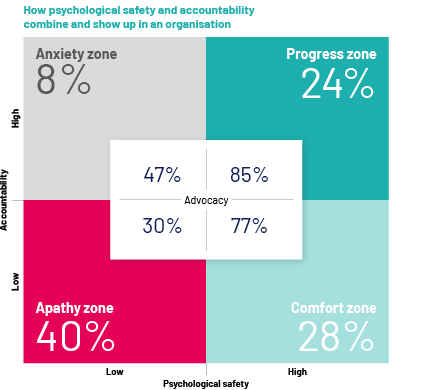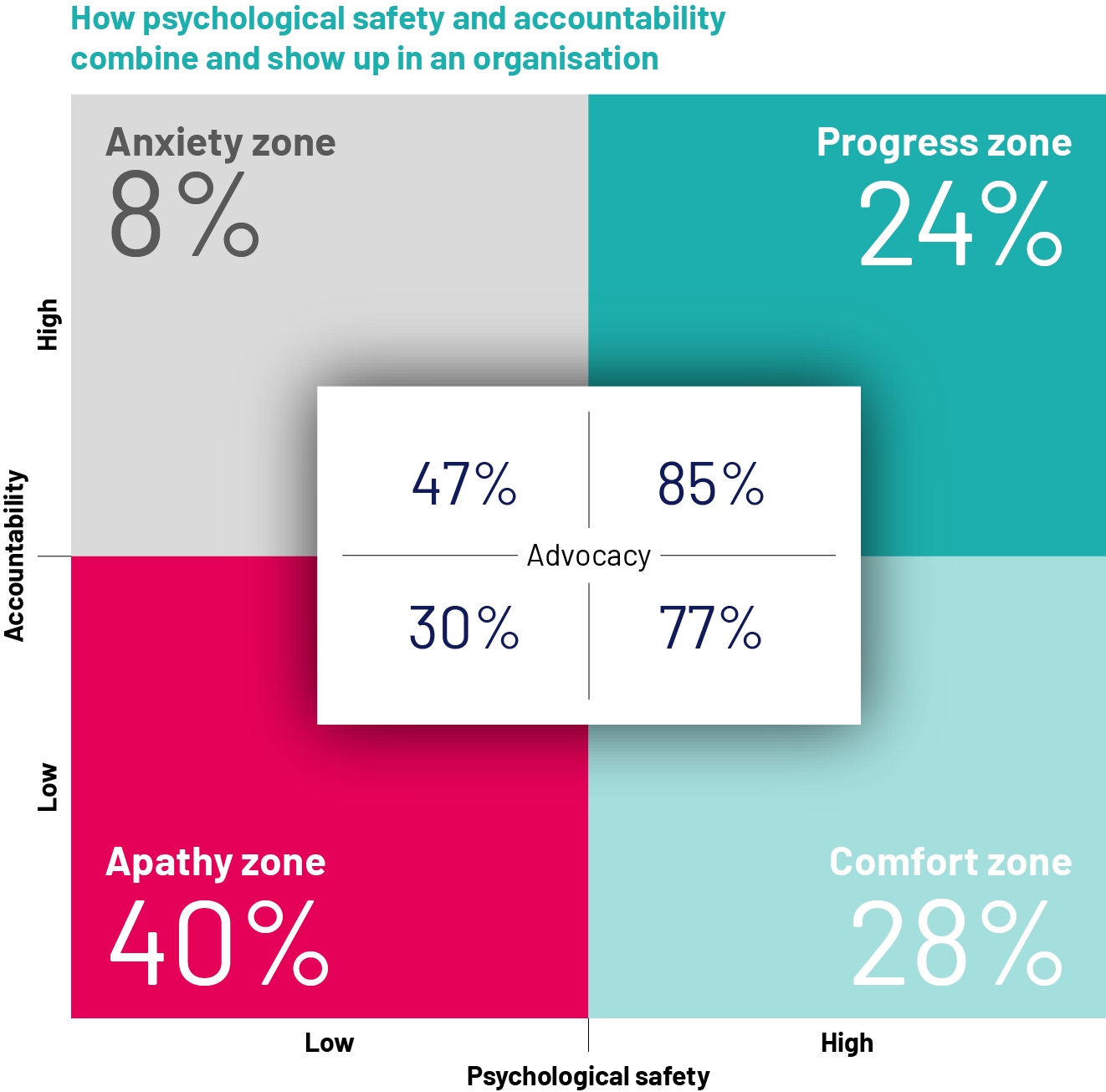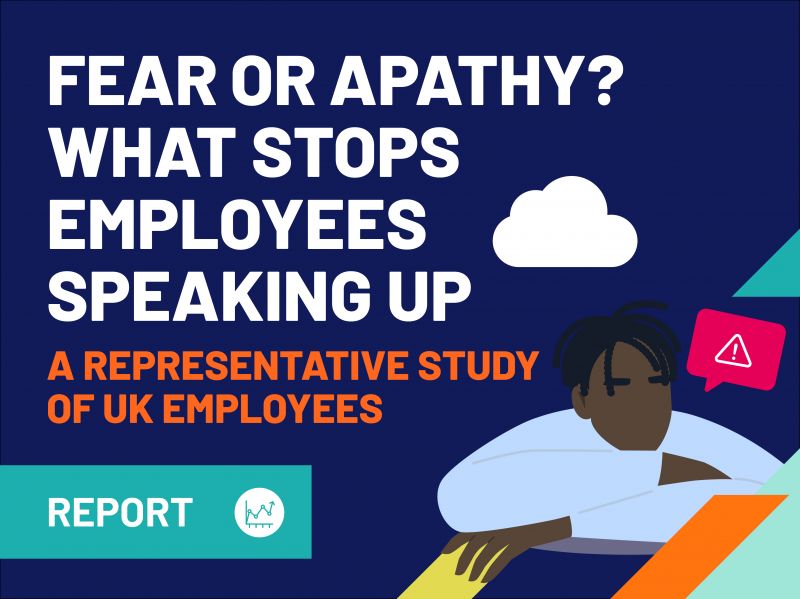Many UK organisations are missing out on the best ideas and insights because people aren’t speaking up. What’s going on? And what can we do about it?
In employee experience, we focus a lot on psychological safety: the shared feeling that it’s OK to take risks and fail. That’s because risk-taking is essential for learning and growth. To try new things, innovate, and generally keep up with the pace of change in the world around us. It’s like Einstein once said: “Anyone who has never made a mistake has never tried anything new.”
If folks in your organisation can freely ask questions, challenge the status quo and ‘break things’, that’s great. It’s fundamental to a positive, inclusive and challenging experience at work – one that employees will recommend. But there’s one more thing that could take this ‘speak up’ mindset to the next level, and it’s something many organisations struggle with: accountability.
Research has long shown that for an ideal innovative and learning environment, psychological safety and accountability should go hand in hand. When employees are accountable in their day to day, they’re more empowered and autonomous. And it offsets stressors, too.1
The thing is: UK organisations are facing an accountability problem.
According to our representative study conducted last year, less than half of UK employees agree that when people at work say they’ll do something, they can be relied on to get it done (47%).
A meagre third feel colleagues get regular feedback (36%), and just 40% think poor performance is dealt with effectively. This drops to 35% in the public sector.
So, what are the telltale signs that your organisation might have an issue with accountability?
If teams struggle to change how they work, even in a strong speak up culture, accountability could be the missing ingredient. When colleagues don’t hold each other and themselves accountable, they can lack motivation or get stuck waiting for others to do their bit.
The end result is apathy. Feeling unable to effect change, people keep their heads down rather than try to reach their full potential – limiting commercial results and dragging down job satisfaction.
If this sounds a little dramatic, you might be surprised to learn that 2 in 5 UK employees fall into what’s called the apathy zone.2 That’s people who experience low accountability and low psychological safety at work. The apathy zone is even bigger (45%) when we exclude those in leadership roles.



Source: Fear or Apathy? What stops employees speaking up. Ipsos Karian and Box, 2024. Model derived from Edmondson (2018)2.
How’s this population feeling? Well, they’re under more strain, more likely to want to leave their employer in the next year, and just 30% would recommend their organisation as a great place to work. That’s compared to 85% of employees who are both accountable and psychologically safe.
There are some things employers can do to target the apathy zone.
Firstly, an accountable culture is almost impossible without psychological safety – that’s the place to start. Are leaders seeking out, nurturing and amplifying the quieter voices who may think they don’t matter? Do they listen more than they speak?
Accountability also requires a real focus on ways of working that make everyone’s responsibilities clear, remove siloes and drive efficiency.
And positive, encouraging communications from leaders that show why accountability matters and the tangible results it achieves – as well as role modelling what constructive, authentic accountability looks like – will help bring everyone along on the journey. Something as simple as acknowledging a minor mistake and showing it’s no big deal can make a huge difference.
It’s a complex issue, and every organisation is unique. Ultimately, you need to get under the hood of your culture to understand what will really make the difference. In other words, ask the right questions before you go looking for answers.
There’s more food for thought in our study, Fear or Apathy? What Stops Employees Speaking Up.
Download the report to find out more.

Footnotes/References
1. Edmondson, A. (2008). The Competitive Imperative of Learning. Harvard Business Review, July—August 2008. [Online]. Available at: https://hbr.org/2008/07/the-competitive-imperative-of-learning [Accessed 21/05/24].
2. Edmondson, A. (2018). The Fearless Organization. Hoboken, NJ: Wiley.
Mia Portman







